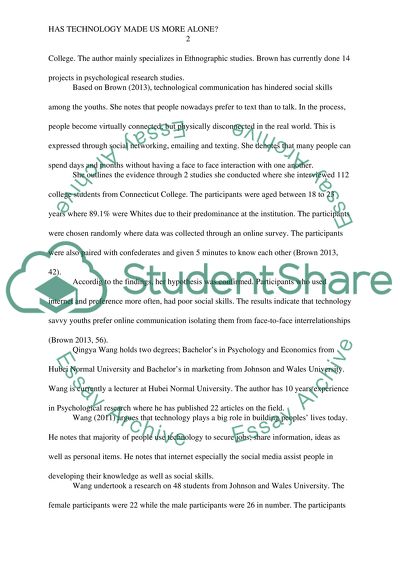Cite this document
(“Has technology made us more alone Research Paper”, n.d.)
Has technology made us more alone Research Paper. Retrieved from https://studentshare.org/psychology/1698394-has-technology-made-us-more-alone
Has technology made us more alone Research Paper. Retrieved from https://studentshare.org/psychology/1698394-has-technology-made-us-more-alone
(Has Technology Made Us More Alone Research Paper)
Has Technology Made Us More Alone Research Paper. https://studentshare.org/psychology/1698394-has-technology-made-us-more-alone.
Has Technology Made Us More Alone Research Paper. https://studentshare.org/psychology/1698394-has-technology-made-us-more-alone.
“Has Technology Made Us More Alone Research Paper”, n.d. https://studentshare.org/psychology/1698394-has-technology-made-us-more-alone.


